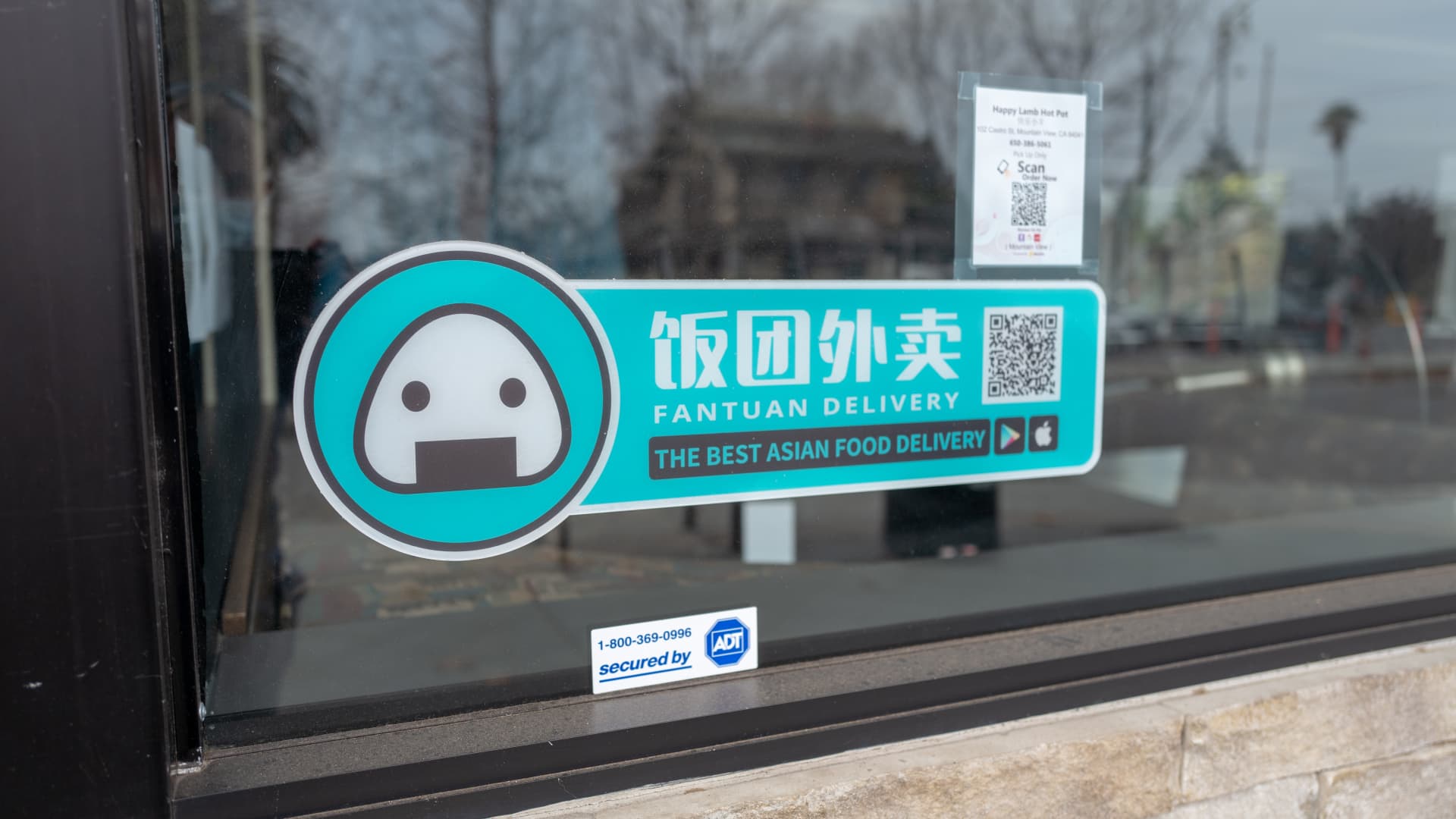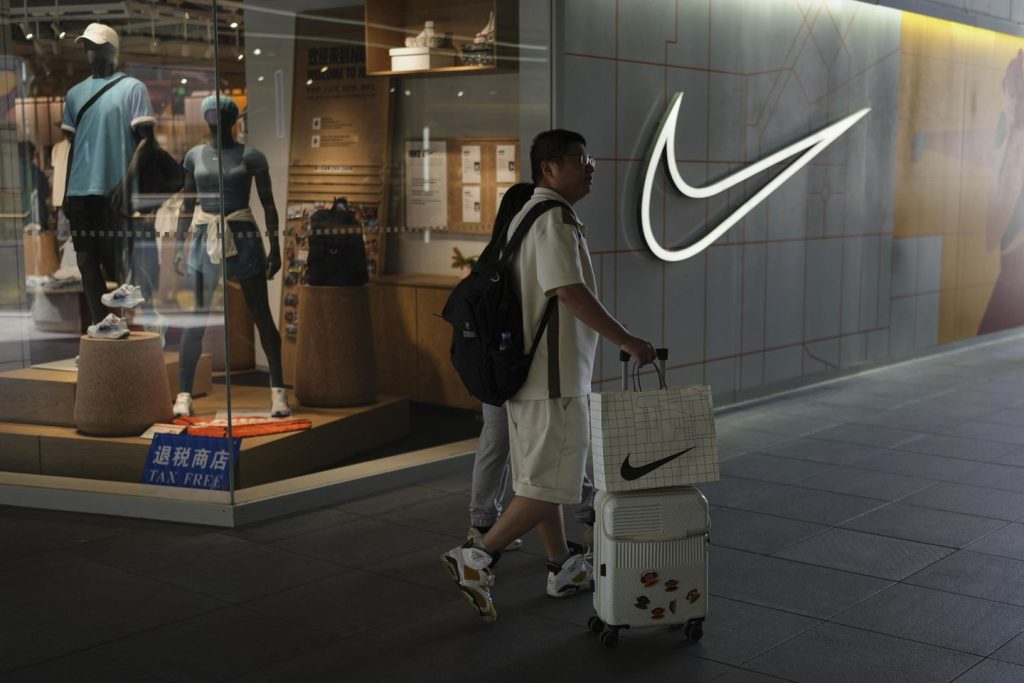Now Reading: Under-the-radar delivery apps are gaining ground in the U.S. by courting Asian restaurants
-
01
Under-the-radar delivery apps are gaining ground in the U.S. by courting Asian restaurants
Under-the-radar delivery apps are gaining ground in the U.S. by courting Asian restaurants

A logo featuring a QR code for the Fantuan Asian food delivery service was spotted in Silicon Valley’s Mountain View, California, on January 3, 2021.
Smith Collection/gado | Archive Photos | Getty Images
NEW YORK – Kelly Wu, a New York City resident, turns to Fantuan, a Vancouver-based startup specializing in Asian cuisines, when she craves congee, a Chinese porridge. Instead of using well-known apps like Uber Eats or DoorDash, Wu appreciates the focus on Asian food that Fantuan offers.
Digital food delivery platforms like Uber Eats, DoorDash, and GrubHub have become popular in the U.S., but for Asian cuisine enthusiasts like Wu and restaurant owners, smaller platforms such as Fantuan and HungryPanda are becoming the preferred choice.
A distinctive approach
Fantuan’s strategy, according to co-founder Yaofei Feng, sets it apart from larger food delivery platforms due to its emphasis on Asian businesses. The company personally approaches store owners to discuss joining the platform, a process that often involves conversations in Chinese to cater to entrepreneurs who speak English as a second language.
Feng stated, “The way we gain their trust is very unique.”
Offering language options besides English and a design reminiscent of Chinese platforms like Alibaba helps Fantuan appeal to business owners seeking familiarity. Since entering the U.S. market in 2019, Fantuan has expanded to over 50 cities, ranging from major cities like Los Angeles to smaller locations like Davis, Calif. The company’s U.S. presence grew following its acquisition of Chowbus’ delivery service last year.
Fantuan primarily relies on strategies like providing signage at storefronts, stickers for delivery drivers, and collaborations with influencers on platforms like Tiktok to expand its customer base among first-generation immigrants, international students, and others craving authentic Asian cuisine.
Competing in the market
After acquiring Chowbus, HungryPanda emerged as a significant competitor to Fantuan. However, customers like Wu continue to prefer Fantuan for its service quality. HungryPanda, which raised $55 million last year, is also focusing on expanding its operations in North America.
Feng believes Fantuan can coexist alongside larger delivery platforms by connecting customers with authentic and often smaller Asian businesses, rather than attempting to compete with established chains already using other services.
In neighborhoods like Flushing in New York City, Fantuan has gained popularity among Chinese-Americans, with local businesses seeing a rise in orders through the platform compared to other mainstream delivery apps like Uber Eats or DoorDash. Restaurant owners appreciate the promotions offered by Fantuan and the ability to communicate through platforms like WeChat.
The presence of Fantuan logos in areas with high concentrations of Asian businesses, coupled with positive reviews and authentic dishes, has made the platform a go-to choice for customers seeking traditional Asian meals over more mainstream options like Uber Eats or DoorDash.






